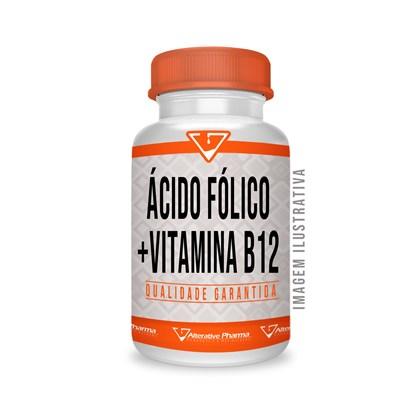
Vitamin B12 and folic acid are essential for the proper functioning of our body. Find out what they are used for and what foods contain them.
Let's take a closer look at the functions of vitamin B12 and folic acid, because they are important, which foods to combine with each other.
What is Vitamin B12
La vitamina B12 o cobalamina, water-soluble, it is also known as "the energy vitamin" for its energizing power and is essential for longevity.
It cannot be produced synthetically but forms on colonies of bacteria or molds present mainly on meat; B12 is a dark red vitamin, a shade given to it by cobalt.
Why vitamin B12 is important
Vitamin B12 is very important for the synthesis of hemoglobin. It is necessary for the metabolism of nervous tissue, proteins, fats and carbohydrates. Furthermore regulates iron intake by the body e fixes vitamin A in fabrics.
Where vitamin B12 is contained
The main source in which vitamin B12 is present is given by animal proteins. The liver is the best source, followed by the kidney, from muscle meat, from fish; in the vegetarian field is contained in egg yolk and, to a lesser extent, in cheese, especially seasoned.
It is strongly debated whether it is contained in the form most useful for us also in algae, such as nori or spirulina, in soya and derivatives.
What does a vitamin B12 deficiency entail?
A vitamin B12 deficiency leads to serious neurological disorders e behavioral and can lead to forms of anemia.
Serious deficiencies of vitamin B12 due to insufficient food intake are quite rare, however they can affect vegans who are not attentive to food, people with difficulty in assimilating it, the elderly.
Symptoms of a vitamin B12 deficiency can be recognized as: weakness, paleness, jaundice, fatigue, inflamed tongue, tingling extremities, reduced pain perception, irritability, headache, depression, sleep disturbance, difficulty remembering,
Vitamin B12: when to take it and dosage
What is folic acid
L'folic acid is also known as b9 vitamin. The name derives from the Latin folium which indicated broad-leaved vegetables such as spinach or chard, which are rich in it. Folic acid possesses a complex structure, which includes benzene and heterocyclic nuclei with nitrogen.
Why folic acid is important
Folic acid is essential for the synthesis of DNA and proteins and for the formation of hemoglobin, and it is important for the correct growth of the embryo. The presence of folic acid is essential to balance the levels of homocysteine, an amino acid associated with cardiovascular diseases and heart attacks. Due to its protective action on the tissues that will form the fetus, it is important for the prevention of congenital defects (diabetes, malformations, anemia).
Where is folic acid contained
Folic acid is found in abundance in some foods such as green leafy vegetables spinach, broccoli, brussels sprouts, asparagus, salad; it is also contained in legumes, whole grains, fruit such as lemon, melon, kiwi, strawberry, oranges and brewer's yeast. The liver he is equally rich in it. Care must be taken because the cooking process however destroys part of the folate present in food.
What does a folic acid deficiency entail?
Folic acid deficiency in the early stages of pregnancy can significantly increase the risk of malformations of the fetus; it can also cause intrauterine growth retardation, premature birth or lesions in the placenta.
In adults, a lack of folic acid can causemegaloblastic anemia. The first symptoms of its deficiency are feelings of fatigue, depression, decreased immune defenses.
Importance of combining vitamin B12 and folic acid
Folic acid, like vitamin B12, is also part of the B vitamins, all essential for the proper functioning of our body. Vitamin B9 or folic acid is water-soluble and acts as a coenzyme, together with vitamin B12, in the breakdown and utilization of proteins.
The two vitamins are closely related: Vitamin B12 deficiency can cause folic acid deficiency, and deficiency of either vitamin can cause anemia. Vitamin B12 in fact acts in combination with folic acid to allow perfect hematopoiesis. Yes therefore to combinations of foods containing vitamin B12 and folic acid outlined above.
Discover foods rich in B vitamins
To learn more:
> Foods rich in vitamin B
> Natural supplements against anemia
> What are and when to take natural vitamin B12 supplements
> The 5 benefits of folic acid
> Vitamin B12 high and low
| Takomabibelot


























